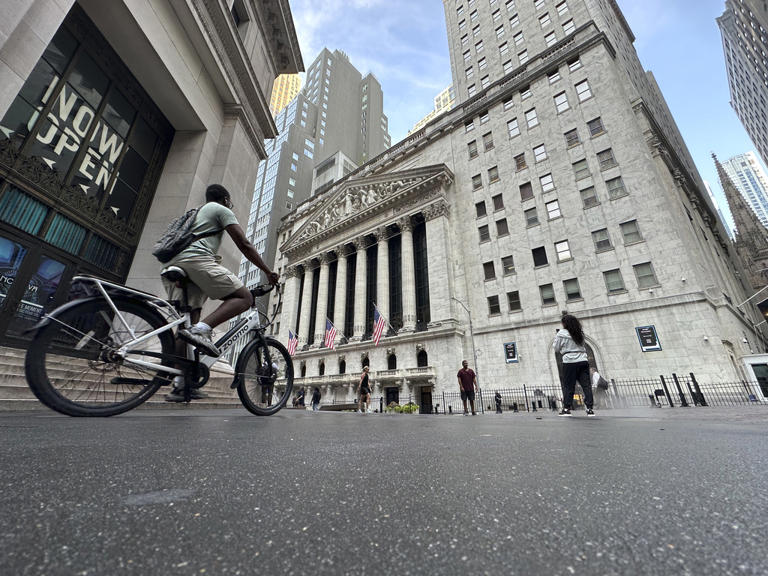On Tuesday, the stock market on Wall Street exhibited a nuanced performance, with the S&P 500 and Nasdaq Composite inching up 0.1%, marking new highs for the second time this week, while the Dow Jones Industrial Average slipped marginally by 0.1%. The day unfolded against the backdrop of Federal Reserve Chair Jerome Powell’s testimony before the Senate Banking Committee, where his remarks echoed the Fed’s cautious stance on monetary policy adjustments amidst ongoing inflation concerns.
Powell reiterated that while inflation has moderated somewhat over the past two years, it remains above the Federal Reserve’s target of 2%. He underscored the risks associated with delaying or inadequately adjusting interest rates, cautioning that such actions could potentially weaken economic growth and job market stability. Powell’s testimony provided little new guidance on the timing of potential rate cuts, leaving market expectations largely unchanged. Traders, however, continued to price in a 70% probability of a rate reduction as early as September, based on market data from CME Group.
Lisa Erickson, head of public markets at U.S. Bank Wealth Management, observed that the market’s muted reaction indicated that Powell’s comments did not introduce unexpected elements, allowing for a modest upward drift in stock prices.
In the bond market, Treasury yields saw a slight uptick, with the yield on the 10-year Treasury note rising to 4.30% from 4.28% the previous day. The Federal Reserve has maintained its benchmark interest rate at its highest level in over two decades, maintaining a vigilant stance as it awaits clearer signals of sustained inflation moderation.
Despite some easing in inflation metrics throughout 2024, which have hovered around 3%, the pace of decline has been gradual. This persistent inflationary pressure continues to impact consumers, particularly those with lower incomes, who face higher costs for essential goods and services. Powell acknowledged that while elevated inflation poses significant risks, he emphasized that it is not the sole economic challenge facing the nation.
The U.S. economy has been supported by a strong labor market and robust consumer spending, although recent data suggests a moderation in these trends. Rising borrowing costs due to elevated interest rates have further strained consumer finances, prompting shifts in spending behavior towards necessities rather than discretionary items.
Tuesday’s market activity saw strength in the financial sector, bolstered by gains in banking stocks. JPMorgan Chase rose 1.2% and Bank of America added 2%, contributing positively to the S&P 500 index’s performance despite declines in sectors such as industrials and energy.
Chipmaker Intel continued to rally, gaining 1.8% following bullish assessments from analysts anticipating robust demand for its upcoming artificial intelligence (AI)-related products. In contrast, consumer goods company Helen of Troy experienced a significant decline, plummeting 27.7% after reporting disappointing first-quarter results that fell well short of market expectations.
Looking ahead, Powell’s scheduled testimony before the House Financial Services Committee on Wednesday is anticipated to provide further insights into the Fed’s policy stance amidst evolving economic conditions. This testimony precedes key inflation reports later in the week, with Thursday’s consumer price index (CPI) expected to show a slight easing to 3.1% in June from 3.3% in May, and Friday’s producer price index (PPI) report providing additional context on inflation trends.
Traders are also closely monitoring upcoming corporate earnings releases, including Delta Air Lines on Thursday and major banks such as JPMorgan, Citigroup, and Wells Fargo on Friday. These earnings reports are expected to offer critical insights into consumer debt levels, business outlooks, and potential economic headwinds in the months ahead.
In conclusion, even though Powell’s measured remarks helped to boost market performance on Tuesday, Wall Street’s future is still closely tied to upcoming economic data releases, Federal Reserve policy signals, and corporate earnings updates. In the short term, these variables affect market dynamics and investor sentiment collectively.
